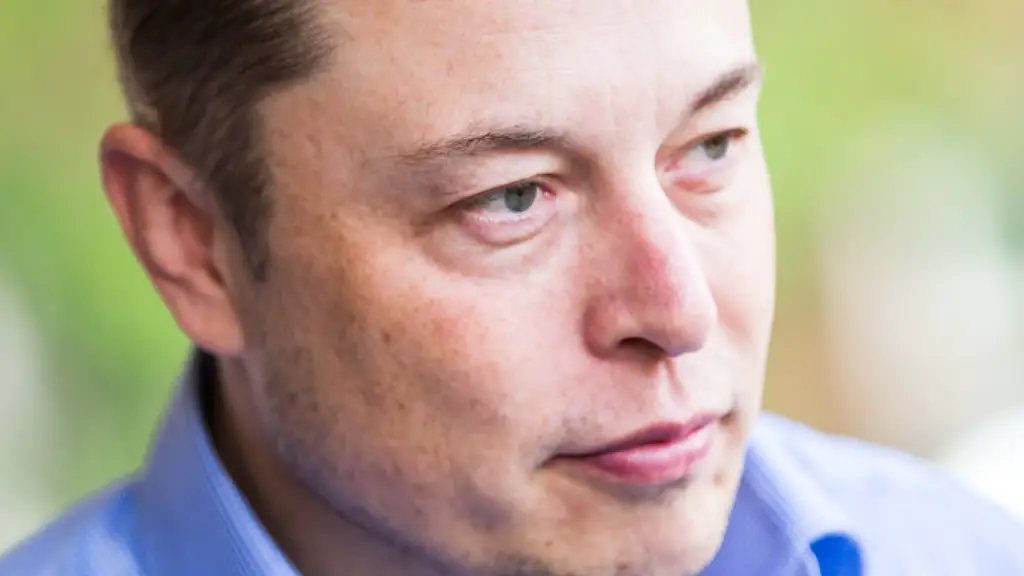If you believe Tesla CEO and tech entrepreneur Elon Musk, he plans to one day terraform Mars and put a million people there in the next hundred years. The planet’s surface is currently too cold, lacks oxygen and its atmosphere is almost entirely gaseous carbon dioxide, making it extremely difficult to live there. But Musk believes that he can make Mars habitable using technology, and lays out a plausible plan to terraform the planet.
Start by collecting carbon dioxide out of the Martian atmosphere and convert it into oxygen using locally-sourced materials. A good place to start is the polar ice cap, which is mostly composed of frozen CO2. After melting the ice and capturing the released CO2 molecules a process known as carbon dioxide scrubbing the CO2 can be turned into oxygen. We could then release the oxygen into the atmosphere and create an oxygen-rich habitat.
The next step in Elon Musk’s plan is to warm the planet. He suggests that we do this by deploying a billion mirrors in space to act as a sunshield and reflect sunlight onto the planet’s surface. This mirrors would help kick-start the planet’s temperature heating cycle, allowing the ice to melt and further lower the temperature on the planet’s surface. We may also be able to use an orbital nuclear bomb to heat the planet and trigger an acceleration of this process.
Musk believes that we can also use genetically engineered plants to help us terraform Mars. These plants can be specially designed to absorb more carbon dioxide, grow faster and survive the harsh Martian environment. We could use these plants to further transform the atmosphere, creating more oxygen and reducing carbon dioxide levels.
Earth-like habitation on Mars is still far off, but luckily, these techniques all have practical applications on Earth. We can use them to study and understand the global climate, and if successful, use the same strategies to combat climate change, or even move humanity towards a more sustainable future.
Potential Benefits
Terraforming Mars might have several potential benefits. Creating a sustainable, livable environment on the Red Planet could eventually remove the need to launch long-distance space missions. So, instead of sending humans and materials all the way to Mars and back, they could just live there. This could drastically reduce the cost of space exploration and colonizing space, while potentially providing new resources to humanity.
This could also have major implications for our understanding of the cosmos. We could learn more about space and potentially open the door to a wide array of new fields, such as astrobiology, mining, and space engineering. This could revolutionize our understanding of the universe and facilitate major advancements in our technology and science.
Potential Drawbacks
While terraforming Mars may have the potential to unlock great opportunities and benefit humanity, this endeavor may also have undesirable side effects. For example, it may inadvertently cause drastic changes in the Martian environment, which could potentially result in catastrophic consequences. An example of this is if the process were to release a burst of greenhouse gases, which would cause the planet to warm up faster than expected.
In addition, terraforming Mars could come with an astronomical financial cost, making it difficult for countries to invest in such a project. This could potentially prevent the project from ever getting off the ground. There are also those who are against terraforming Mars, as they believe it would lead to the exploitation of the planet’s natural resources without any ethical consideration.
Technological Requirements
If Elon Musk wants to realize his dream of terraforming Mars, he will need to develop a range of new technologies. This will include new materials and processes to collect and transform carbon dioxide, energy storage systems that can last for long periods of time, and advanced plant genetics that can survive the harsh Martian environment.
Additionally, Musk will need access to a massive amount of energy that can be used to power these processes, as well as long-term financing to support the project. Elon Musk and his team of engineers will also need to develop shield technology to protect Mars from cosmic rays, as well as advanced propulsion systems that can usher in a new era of space travel.
The Timescale
Musk has estimated that terraforming Mars could take a century, but this will depend on the speed of technological advancement. Even with rapid innovation, we estimate that it could take decades to make the planet livable. Of course, the project is unlikely to be completed in Musk’s lifetime, but it has the potential to completely transform Mars and open up an entirely new world of exploration and discovery.
Ethical and Legal Concerns
Aside from the scientific and technological hurdles, terraforming Mars also brings up several ethical and legal dilemmas. Questions arise as to who will be responsible for this endeavor, who will benefit from it, and who will protect the interests of future generations. These matters will need to be addressed before any progress can be made on terraforming a planet.
Organizations like the United Nations may have to step in and craft regulations that protect Earth and Mars from unprincipled exploitation. This could be in the form of legal frames that define certain boundaries and responsibilities. This could be essential in protecting the interests of both planets and preventing potential conflicts and misuses of power.
Conclusion
Terraforming Mars is still a far-fetched dream at this moment, but the potential to make the Red Planet livable is there. An ambitious project like this would require immense technological and scientific prowess, as well as the legal framework to protect our interests and prevent potential exploitation. It would change the future of space exploration and perhaps even our understanding of the universe. If Elon Musk’s dreams come true, the world will be watching.



